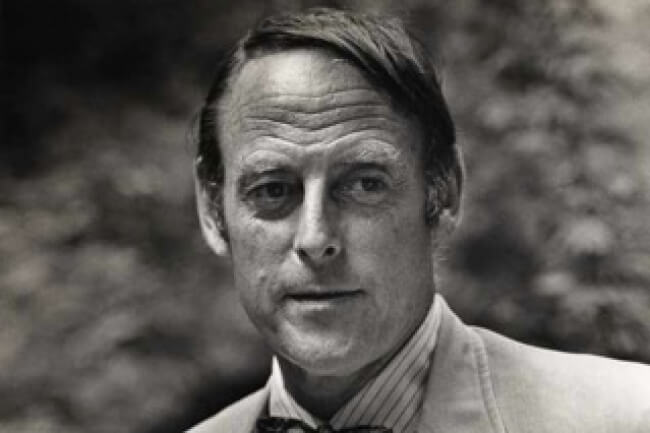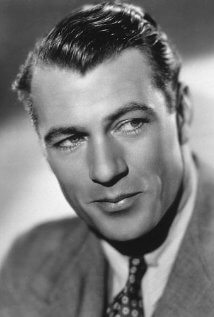Ricochet is the best place on the internet to discuss the issues of the day, either through commenting on posts or writing your own for our active and dynamic community in a fully moderated environment. In addition, the Ricochet Audio Network offers over 50 original podcasts with new episodes released every day.
 A Life That Made a Difference
A Life That Made a Difference
 My father, Randy Richardson, died, fittingly, on Memorial Day. Not only had he quit high school to go serve in the Battle of the Bulge and experience the other delights of Patton’s Third Army, but he committed much of his adult life to trying to do — in his own unusual way — what he could to maintain a free society. The ripples from what he started continue to this day.
My father, Randy Richardson, died, fittingly, on Memorial Day. Not only had he quit high school to go serve in the Battle of the Bulge and experience the other delights of Patton’s Third Army, but he committed much of his adult life to trying to do — in his own unusual way — what he could to maintain a free society. The ripples from what he started continue to this day.
One form his efforts at improving this country took was the founding of a film and documentary company in the 1960s to try to bring better-quality programing to television. Another effort involved publishing, and led to the founding of the Conservative Book Club.
In 1973, Dad became the head of a foundation his father had created with an eye to keeping strong the country that had made so much opportunity available to his own family: the Smith Richardson Foundation.
In the 20 years Dad ran the Smith Richardson Foundation, SRF provided seed capital for the development of supply-side and monetarist economics and for early neo-conservative efforts, as well as supporting free-market, pro-democratic, and anti-Communist movements that led to the Reagan revolution and the end of Soviet Communism.
Dad’s patience with high overhead, puffery, and bureaucratic sloth was nil; his skepticism about politicians, even those he agreed with, was ingrained; and his contempt for businessmen who “parked their brains at the door” when it came to philanthropy was legendary. Dad wasn’t an academic, but he was a lifetime learner and an avid reader of history, science, and philosophy. A serious Presbyterian, he was a great believer in the promise of America and the power of common sense.
The foundation ran leanly, deliberately choosing offices with exposed pipes in unglamorous neighborhoods to keep overhead low. Unsolicited requests went to an administrative office in a different state — mostly to be politely declined. A small like-minded board was made up of family members and policy experts, including, most notably, James Q. Wilson, Robert Bork, and Jeane Kirkpatrick (who said that, after her stint as ambassador to the U.N., SRF’s was the only board she agreed to join — although she had many offers).
During his tenure, Dad deliberately kept SRF’s funding anonymous wherever legally possible — in part because he had no patience with being feted, but more importantly because he believed credit belonged to the organizations doing the work. Additionally, he observed that grantees were better served if their funding came without a politicized profile, and that anonymity emboldened the SRF board to take risks in its grant-making, supporting projects that were not yet obvious candidates for funding.
That approach bore bountiful fruit. SRF provided start-up and ongoing funding for pioneering organizations like the Federalist Society, the Manhattan Institute, the Foreign Policy Research Institute, the Law and Economics Center, the Institute for Educational Affairs, the American Enterprise Institute, the Heritage Foundation, the Committee for the Free World, the Center for Individual Rights, and the National Humanities Center.
Irving Kristol gave credit to Dad not only for initial and ongoing support for The Public Interest, but also for the original grant to that journal’s internship program — which made Dad neo-conservatism’s Godfather’s godfather.
Other early start-up funding went to a tiny publication in Bloomington, Ind., The Alternative, which grew up to become The American Spectator, as well as publications like The National Interest, This World, and The New Criterion.
And then there was support for thinkers and their books, such as George Gilder’s Wealth and Poverty, Jude Wanniski’s The Way the World Works, Michael Novak’s The Spirit of Democratic Capitalism, Martin Feldstein’s and Michael Boskin’s early work, Richard Herrnstein and Charles Murray’s The Bell Curve, and Jeane Kirkpatrick’s research for Dictatorships and Double Standards. SRF also supported television productions such as Milton Friedman’s Free to Choose.
Sometimes those ideas took other forms, such as Chris DeMuth’s regulatory-policy program at Harvard, a 1974 seminar on a brand-new idea — education vouchers — or Sam Huntington’s graduate and undergraduate programs.
Dad wasn’t just interested in the ideas that were central to greater liberty and economic prosperity; he was also deeply concerned about the Communist threat. He had seen first-hand, after the war, Soviet trucks hunting defectors on roads teeming with traumatized refugees; the Soviets questioned all those who appeared to be German POWs returning home — and if an individual didn’t answer immediately in good German, the Soviets assumed he was a defector and shot him on the spot.
So SRF also had a strong foreign affairs program, not only supporting Freedom House and other human rights organizations, but also providing funding for such things as transmission towers and programming for Radio Free Europe and Radio Liberty, a bulletproof car and bodyguards for Peruvian economist Hernando de Soto (who was then #2 on Shining Path’s hit list), other Latin American work through the Atlas Economic Research Foundation, and the founding of Radio Martí.
SRF also supported and worked with Soviet dissidents and their Western allies, such as the Andrei Sakharov family, Mrs. Aleksandr Solzhenitsyn, Tom Stoppard, and offshoots of the Polish labor union Solidarnosc (Solidarity). It also supported much groundbreaking work on strategic studies, influencing the public debate on defense and foreign policy in successive administrations, and never abandoning the struggle to liberate Eastern Europe from Soviet tyranny.
Throughout, Dad looked for talented individuals with good ideas, giving them the resources they needed and then getting out of the way.
Perhaps a measure of the success of that approach is that when Ronald Reagan assumed the presidency, 66 individuals who had been grantees of the foundation went into significant positions in the new administration. But a further measure is how many of those things, started long ago, still matter. It was a commitment kept — and a life that made a difference.
Published in Culture




Eternal rest grant unto him O Lord,
and may perpetual light shine upon him.
The lives of great men form the basis for study of all who aspire to live a full life. Your father’s story is one that deserves to be remembered by all.
His legacy will definitely live on—a life of accomplishment and achievement. Condolences for your family.
Condolences. Your dad will be missed.
I am so sorry about your Dad; you and your family are in my prayers.
We the beneficiaries of his life’s work and sacrifice owe Randy Richardson a great deal of honor and gratitude.
Thank you for this profile.
Thank you for that remembrance of your father. It was great to be made aware of his accomplishments and goals. I looked up his full obituary, and here is a link for others:
http://easthamptonstar.com/Obituaries/2015604/Randolph-Richardson-Philanthropist-Was-89
Rest in peace, Third Army soldier, and thank you.
Wow! What an amazing life, role model, and peace maker – I wonder if a book about his dedication to freedom shouldn’t be taught in school? His life and legacy live on through all you described. Just his military service alone is worth bowing our heads upon his passing. God bless you and your family and thank you for sharing.
Cool. He had that rare combination of genuine goodness and real achievement.
Blessings to your family.
Not to mention that his looks were in a league with Gary Cooper. Very sorry for your loss.
Thanks, Heather. Your dad was a special person, and our prayers are with you.
Many thanks to you all. Dad would have hated the attention and thanks, but I think he more than deserved it. Much appreciated, even if in absentia. – HRH
A very touching tribute to a great man. Thank you for sharing it.
I believe Ricochet has a number of members whose fathers survived the Battle of the Bulge with their common sense and optimism intact. Remarkable, effective men, but your father sounds outstanding even in that group. I expect he thought you were an important accomplishment too.
Your last statement is awesome, this being the month of Father’s Day. Being a good father and having the admiration, success (in their own way) and respect of your children is a great accomplishment in my book.
The story of your father is remiscent of the cathedral builders of old: They start and build brick by brick full in the knowledge that their lives will be over long before the final brick is put in place. That service will be ever on a path whose destination they will not personally reach. But because the design is solid and the construction true, all may benefit even while construction remains in process.